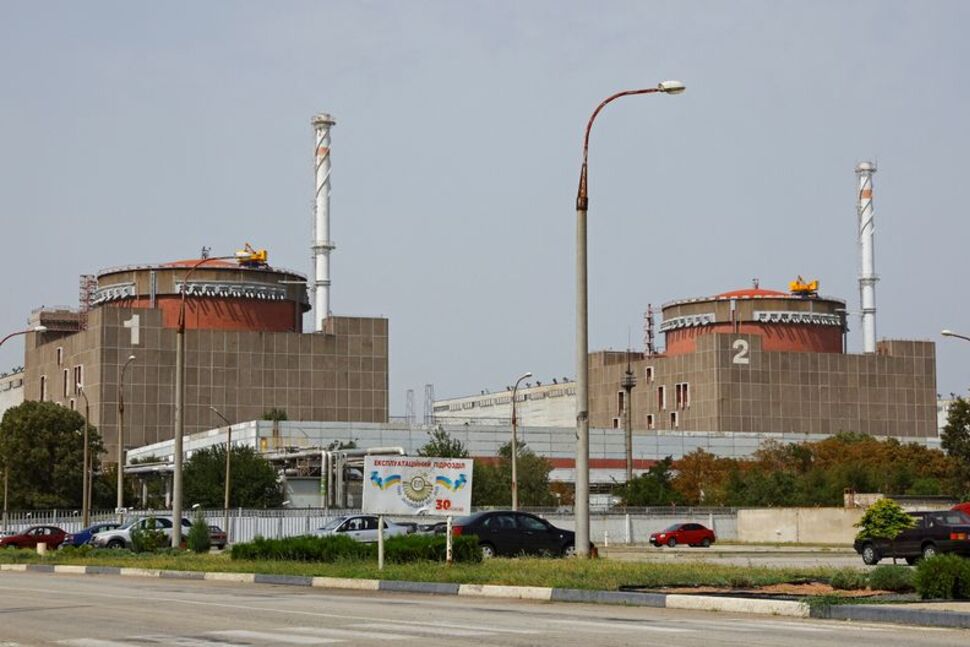New York/Kiev, Sept. 7, (dpa/GNA/GNA) - UN Secretary General António Guterres has called on Russia and Ukraine to agree on a combat-free zone around the Zaporizhzhya nuclear power plant.
“The current situation is untenable and the best action to ensure the safety and security of Ukraine’s nuclear facilities and its people would be for this armed conflict to end now,” Guterres told the UN Security Council in New York.
The Zaporizhzhya plant and its surroundings must not be a target or platform for military operations, he said.
“Pending the end of the conflict and re-establishment of stable conditions there is an urgent need for interim measures to prevent a nuclear accident arising from physical damage caused by military means,” Guterres said.
The UN chief’s comments echoed a call by the International Atomic Energy Agency (IAEA) urging the creation of “a nuclear safety and security protection zone” to prevent the risk of a radioactive leak.
Following his trip to the Zaporizhzhya nuclear power plant last week, IAEA head Rafael Grossi warned the UN Security Council that the world was “playing with fire” and that “something very, very catastrophic could take place.”
Grossi said that the shelling of the facility had to end, that military vehicles must be removed from the site and that the external power supply to the reactors must be ensured.
Following months of negotiation, a 14-member IAEA team led by Grossi travelled to Zaporizhzhya last week in order to investigate the security situation at the plant and establish a long-term presence there. Two IAEA experts are now permanently based at the site.
Grossi’s report said, among other things, that Russian armoured vehicles had been stationed inside the turbine halls, which could pose a safety threat if they are not withdrawn.
Repeated artillery fire, for which Kiev and Moscow blame each other, had damaged the roofs of the plant’s radioactive storage facilities, the report added. In addition, part of the system for measuring on-site radiation levels was not functioning.

Zaporizhzhya’s Ukrainian employees – who have been working under the control of local Russian military commanders since March 4 – were enduring unsafe and stressful conditions, the agency director warned.
“This is not sustainable and could lead to increased human error with implications for nuclear safety,” he wrote. Grossi’s report listed several examples of staffing shortages, including the reduction of the firefighting force from 150 to 80 staff.
Grossi wrote that the Ukrainian operating staff was sometimes prevented from entering certain areas of the plant by Russian forces, and also expressed concern about interruptions to the plant’s off-site power supply, which has been lost “fully or partially” on several occasions.
“Off-site power is essential for the continued safe operation of the plant,” the director’s report said, recommending that a backup power supply be put in place.
Hours before the IAEA report came out, renewed artillery fire led to a power outage in Enerhodar, the closest town to the plant, according to both Russian and Ukrainian sources.
On Monday, the Ukrainian power plant operator Enerhoatom announced that there had been an emergency shutdown at the sixth and last reactor still in operation.
Later, however, Kiev informed the IAEA that the power plant’s power supply would be met by an operating reactor after a forced disconnection from the Ukrainian grid.
Russia’s Defence Ministry on Tuesday accused Ukraine of shelling Zaporizhzhya 15 times in the past 24 hours. For its part, Kiev had repeatedly blamed Russian troops for attacking the site. Neither side’s claims could be independently verified.
Elsewhere in the conflict, a senior advisor to Ukrainian President Volodymyr Zelensky confirmed that the Ukrainian military had begun two counter-offensives against Russian positions in eastern and southern Ukraine.
Oleksiy Arestovych said the dual counter-offensive was intended to tie up Russian reserves and prevent the Russian military from reinforcing one section of the front at the expense of the other.
While Arestovych’s comments could not immediately be verified, correspondents for Russian state TV reported that the town of Balakliya in eastern Ukraine’s Kharkiv region had come under attack on Tuesday.
While a Ukrainian counter-offensive in the Kherson region in the south of the country has been under way since last week, very little information has been provided by the Ukrainian military on its progress. US and British intelligence have also indicated that there has been a Ukrainian advance in the area.
GNA